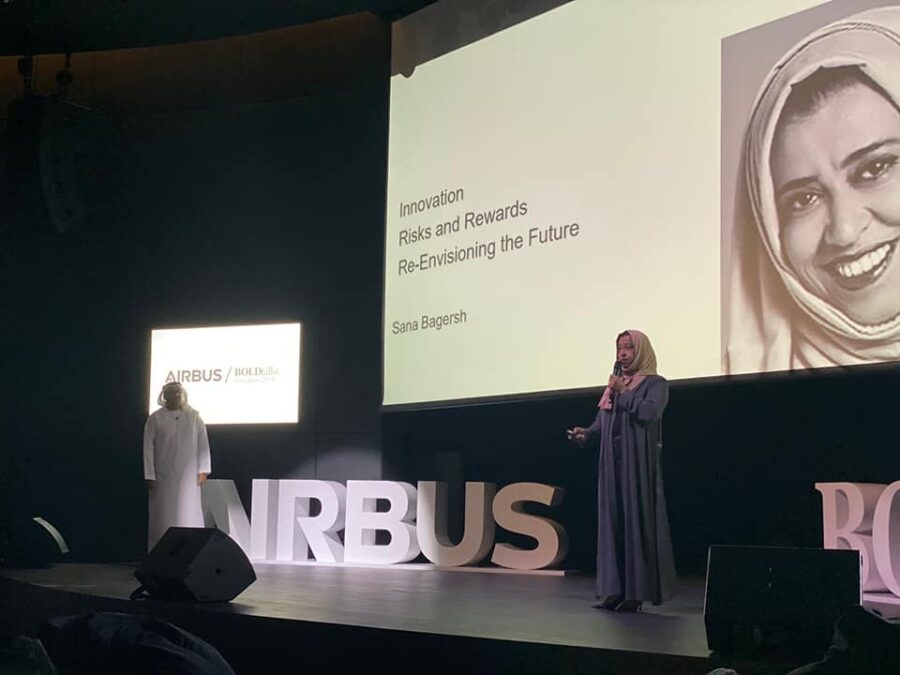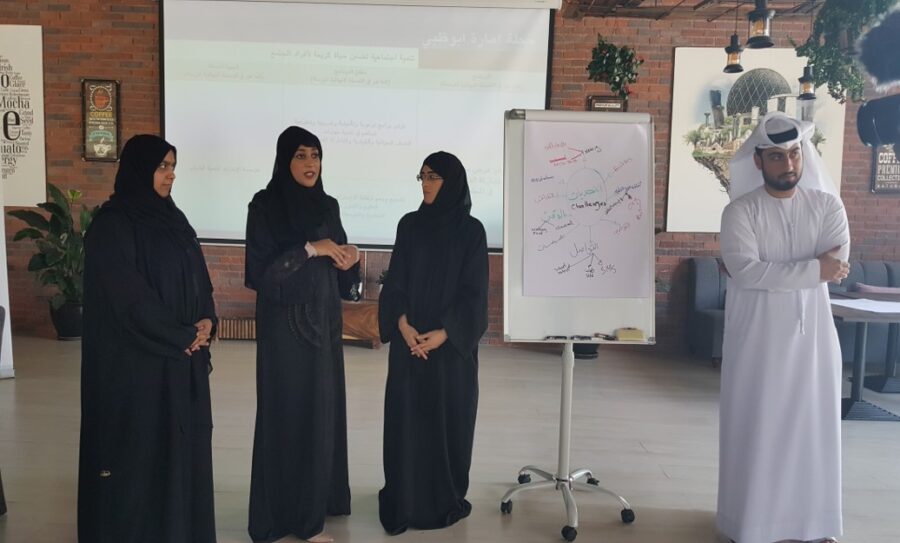SMOOTHING THE START-UP PROCESS
(As published in AMEInfo 29th March 2012) Many small businesses struggle to get established because they don’t fully understand the requirements for start-up, according to a leading Abu Dhabi business consultant. Speaking a recent Tamakkan seminar for entrepreneurs, Soaud Al Hosani from Nexus Business Services said it is very important to identify the proper rules and regulations from the start. “Most small businesses don’t have a clear idea of what is required to set up a business,” said Al Hosani. “There are many great entrepreneurial ideas out there, but many never get started because they have taken the wrong advice or not followed the right regulatory path.” “All start-up businesses should seek an experienced consultant to streamline things like permits, licences, company formation and office locations. Doing this properly in the beginning will improve the success rate of start-up businesses.” A brief survey of attendees at the last Tamakkan seminar showed that many entrepreneurs believe it is harder to source funding for SME businesses in the current economic climate. Despite this, most of those surveyed believe now is a good time to start up a new business. CEO of BrandMoxie, Sana Bagersh, who established Tamakkan in 2009, said there are mixed signals in the marketplace. “It is a difficult balancing act for entrepreneurs at the moment,” said Bagersh. “On one hand, the opportunities are bountiful right now with new sectors being supported by the government and private industry. On the other hand, many entrepreneurs find starting a new business to be quite challenging in areas such as funding sources and regulatory compliance.” “Free seminars, like the ones organised by Tamakkan, are invaluable to supporting entrepreneurs and start-up businesses, with experts like Soaud providing critical advice.” The next Tamakkan seminar is scheduled for 24 April from 6.00pm – 8.00pm at Al Mamoura Theatrette....
Unneeded products a major reason for business failure
By Manar Al Hinai (As published in The National 10th February 2012) If there is one thing the UAE encourages Emiratis and residents to do, it is to start their own businesses. I stopped by the booth of the Khalifa Fund, a government effort aimed at sponsoring Emirati businesses, at Tawdheef’s recruitment exhibition last week, to ask about funding programmes. After a brief conversation about my small fashion business, the business counsellor encouraged me to consider expanding my line and even start a whole new business that would be fully sponsored and supported by the fund’s team of experienced business counsellors. When my late grandfather started his manufacturing business in the late 1950s, there was very little information out there on how to start a business, and yet he succeeded. Since then, the business world has evolved greatly. You could spend years going through the Web articles, magazines, books and videos dedicated to starting a business. But even with all of these resources and the flexible business laws in the UAE, many still fail. After witnessing the negative experiences of some friends and colleagues who failed to properly manage their businesses within the first year, I believe that the answer relies on a number of factors. The primary reason for failure is the entrepreneur’s fixation on a business product or service that is not needed. Great companies all over the world do this all the time. Google launched Google Buzz in 2010, and pulled it last year. Many business owners fail to conduct extensive interviews with their potential customers and find out what they really want. Proper market research not only builds early relationships with potential customers, but also creates a buzz around a brand and sometimes leads to some early sales or sign-ups. Bad management, poor accounting knowledge and lack of marketing can also suck the life out of a small business. A business owner does not need to be a certified accountant to properly run the venture but should understand an income statement, balance sheets and how to operate an accounting programme. Entrepreneurship is all about risk, especially during tough economic times, and this is something that business owners should always keep in mind. Sometimes an entrepreneur will take a calculated risk and encounter an unexpected problem. This is why it is vital to have a proper business plan that provides the flexibility to deal with unforeseen circumstances. Attending trade shows and seeking advice from people in similar businesses in the UAE or the region is useful. It has worked for me, and for many of my colleagues who started businesses. Tamakkan seminars, which take place every...
From A Dream To a Business
By Neil Palmer (as published in The National February 9, 2012) Like many entrepreneurs in the Emirates, Natalie Brown started a small business from scratch. “It’s everybody’s dream,” says Ms Brown, who set up an advisory company, Select Training and Management Consultancy, in 2006. “When I speak to people they always say ‘I want to have my own business. I want to be my own boss.’ And it sounds great, but it’s easier said than done,”says the managing director of Select Training. At the latest Tamakkan Inspire, a free monthly seminar for entrepreneurs that alternates between Abu Dhabi and Dubai, Ms Brown and others shared their strategies for successfully building a business from the ground up in the UAE. Planning was a key theme. Ms Brown, for one, drafted a number of growth plans early on, with goals at three-month, six-month and three-year intervals. Yet it is impossible to draft a plan that accounts for all possible bumps in the road, some argue. “You can never anticipate everything that’s going to happen,” says Alma Kadragic, who has owned a public relations agency and now develops academic programmes at the University of Wollongong in Dubai. Here are tips offered by small-business owners: Hire strategically Finding the right employees is “not about hiring who we want”, says Shridhar Sampath, the founder of the business advisory Motivaluate Consulting. Instead of recruiting those who seem nice enough and would make for a comfortable fit in the office, entrepreneurs should remain focused on the purpose a person would fulfil. Sometimes that requires taking more time. “I wanted a salesperson and someone who could do secretarial work as well,” says Mr Sampath. “It took four months to find someone who had an entrepreneurial mindset to deliver more.” Develop a niche Many employee training companies now operate in the Emirates, and there were even some back in 1995 when Ms Brown arrived in Abu Dhabi. But over the years she noticed a lack of firms focused on UAE nationals and Emiratisation programmes, which is part of the reason she eventually targeted nationals when she launched her advisory more than a decade later. “I realised there was a niche in the market for training,” says Ms Brown, who has about 25 employees. “I’ve had a lot of exposure with Emiratis and the culture, and I tried to devise my own materials. I would have case studies for the weekend – being Friday and Saturday, not a Saturday and Sunday, and people going to a cafeteria – not a pub.” Conserve cash Some experts note that most small businesses that fail tend to go under within their first...
Tamakkan to hold ‘Inspire’ seminar for entrepreneurs
Tamakkan, an organization aimed at supporting entrepreneurs and intrapreneurs, kicks off its spring seminar series on March 29 at Mamoura Auditorium with a new operational model that emphasizes the monthly seminars and supporting ‘boot camp’ courses for small business owners.
The next Tamakkan seminar will focus on social marketing tools for small businesses and a case study presentation of the online business success story Newzglobe.com.
Tamakkan Launches Public-Good Student Initiative
Tamakkan has launched a new initiative aimed at building a student-industry communication infrastructure to promote ‘public good’ schemes while enabling students to become positively involved in public service endeavors.
The Public Good Student Initiative (PGSI) is a platform provided by the agency to involve students looking for training and internship opportunities at its agency to work on public service campaigns aimed at education and information.






